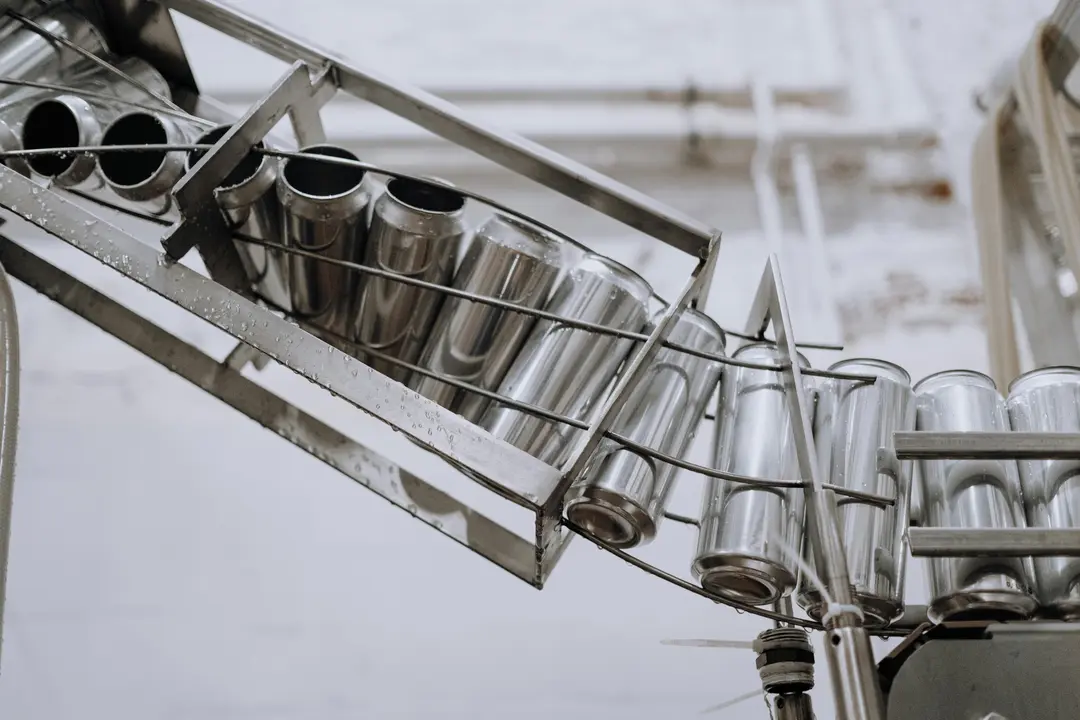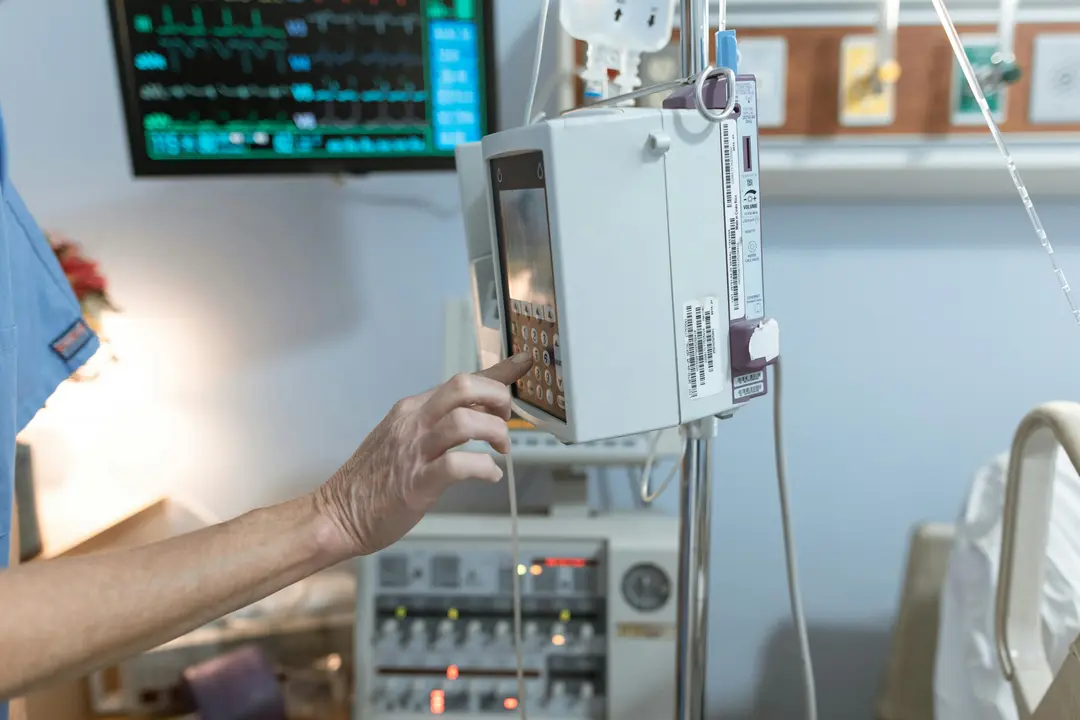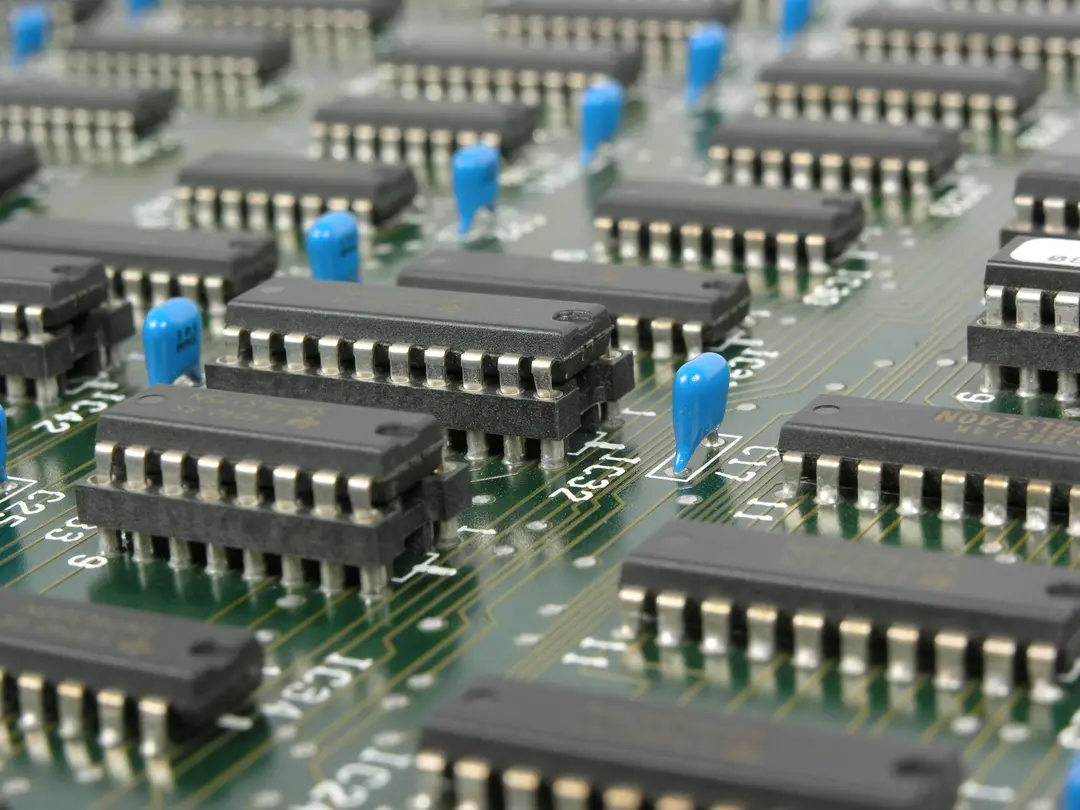What is Acetal?
Acetal or POM (Polyoxymethylene) is an engineering plastic known for being amongst the strongest and stiffest of all thermoplastics.
There are two general types of Acetal resins available: Acetal Homopolymer and Acetal Copolymer.
Acetal homopolymer resins are made by the DuPont Company under the trade name Delrin®. Homopolymers are typically used in highly regulated industries.
Acetal copolymers are made by several companies. Slightly softer than Acetal homopolymers, the Acetal copolymers have a lower coefficient of friction.
You may also see Acetal referred to as:
- Polyoxymethylene (POM)
- POM-C (Acetal Copolymer)
- POM-H (Acetal Homopolymer)
- Ultraform® - Copolymer brand name
- Celcon® - Copolymer brand name
- Tecaform® - Copolymer brand name
- Delrin® - Homopolymer trade name
- Polyacetal
- Polyformaldehyde
Unlike other engineering plastics that produce a long swarf thread when machined, Acetal chips in the machining process. It is therefore recommended to use very sharp cutting tools.
Industries that use Acetal
Copolymer
- Food & packaging
- Medical & pharmaceutical
- Automative
- Electrical/Electronic
- Agriculture
Homopolymers
- Aerospace
- Nuclear
- Pharmaceutical
Main attributes
Acetal Copolymer
- Absorbs very little moisture
- High mechanical strength and rigidity
- Improved dimensional stability over comparable homopolymer formulations due to the lower level of crystallinity
- Low coefficient of friction
- Good compressive strength
- Good shock resistance
- Better chemical resistance with high pH solutions
- Lower centerline porosity than homopolymer in extruded shapes
- Excellent machinability
Acetal homopolymer
- Stiffer
- Wide operating temperature range (-40°C to 120°C)
- Higher flexural modulus at room temperature
- Higher impact strengths at room temperatures and low temperatures
- Tensile strength is approximately 10-15% higher than comparable copolymers
- Slightly higher continuous use temperature than copolymer (95°C vs. 90°C)
- Good compressive strength
- Good shock resistance
- Lower thermal expansion rate
- Better wear resistance
- Easy to machine
Common Applications
- Electrical components
- Medical devices & equipment
- FDA-compliant food contact
- Gears & driveshafts
- Computer & appliance housings
- Fasteners & hardware
- Handles
- Valves & pumps
- Tooling & mouldings
Note for designers
When machined, Acetal produces very few post machining burrs, meaning the process of de-burring can be avoided, saving precious time in manufacturing.
Acetal Copolymer has a slightly lower cost than Homopolymer (Delrin®).
Acetal Copolymers are available in a wide range of colours.
Some disadvantages of Acetal which are worth noting for material selection:
- Flammable
- Subject to UV degradation
- Difficult to bond
- Poor resistance to acids
UK stock sizes
Please note we do not supply stock material, the information provided is purely for design and research purposes.
Stock sizes have a +/+ tolerance as the extrusion process is not as accurate as precision machining.
Stock finishes are often scratched and dented, some sheet plastics come with a protective coating, however because of long suppy chains these can still be scratched underneath.
Example Acetal Stock Sizes
Stock sizes will vary depending on supplier. Please get in contact to discuss further.
Acetal Plate*
Available in Natural (Off White) and Black. Selected Sizes available in Blue.
| 5 x 500 | +0.20/+0.70 |
| 6 x 500 | +0.20/+0.70 |
| 8 x 500 | +0.20/+1.10 |
| 10 x 500/620/1000 | +0.20/+1.10 |
| 12 x 500/1000 | +0.30/+1.50 |
| 16 x 500/1000 | +0.30/+1.50 |
| 20 x 500/620/1000 | +0.30/+1.50 |
| 25 x 500/620/1000 | +0.30/+1.50 |
| 30 x 500/620/1000 | +0.50/+5.00 |
| 35 x 620/1000 | +0.50/+5.00 |
| 40 x 500/620/1000 | +0.50/+5.00 |
| 50 x 500/620/1000 | +0.50/+5.00 |
| 60 x 500/620/1000 | +0.50/+3.50 |
| 70 x 500 | +0.50/+3.50 |
| 80 x 500/1000 | +0.50/+5.00 |
| 100 x 500/1000 | +0.50/+5.00 |
| 120 x 620 | +0.50/+6.00 |
| 150 x 620 | +0.50/+7.00 |
| 12.7 x 610 | +0.00/+0.64 |
| 25.4 x 610 | +0.00/+0.64 |
| 38.1 x 610 | +0.00/+0.64 |
| 44.4 x 610 | +0.00/+0.64 |
| 50.8 x 610 | +0.00/+0.64 |
*Plate stock lengths may vary between 2,000mm and 3,000mm
Acetal Tube
| Inside Diameter (mm) | Outside Diameter (mm) | Tolerance Outside (mm) | Tolerance Inside (mm) |
| 10 | 20 | +0.40/+1.10 | -1.10/-0.4 |
| 15 | 25 | +0.40/+1.10 | -1.10/-0.4 |
| 15 | 30 | +0.40/+1.10 | -1.10/-0.4 |
| 18 | 25 | +0.40/+1.10 | -1.10/-0.4 |
| 20 | 30 | +0.40/+1.10 | -1.10/-0.4 |
| 15 | 32 | +0.60/+2.00 | -2.00/0.60 |
| 20 | 36 | +0.60/+2.00 | -2.00/0.60 |
| 20 | 50 | +0.60/+2.00 | -2.00/0.60 |
| 25 | 36 | +0.60/+2.00 | -2.00/0.60 |
| 25 | 40 | +0.60/+2.00 | -2.00/0.60 |
| 25 | 45 | +0.60/+2.00 | -2.00/0.60 |
| 30 | 40 | +0.60/+2.00 | -2.00/0.60 |
| 30 | 50 | +0.60/+2.00 | -2.00/0.60 |
| 36 | 45 | +0.60/+2.00 | -2.00/0.60 |
| 40 | 50 | +0.60/+2.00 | -2.00/0.60 |
| 30 | 56 | +0.80/+2.50 | -2.80/0.80 |
| 30 | 60 | +0.80/+2.50 | -2.80/0.80 |
| 40 | 56 | +0.80/+2.50 | -2.80/0.80 |
| 40 | 60 | +0.80/+2.50 | -2.80/0.80 |
| 36 | 70 | +0.80/3.00 | -3.00/0.80 |
| 40 | 80 | +0.80/3.00 | -3.00/0.80 |
| 50 | 70 | +0.80/3.00 | -3.00/0.80 |
| 50 | 75 | +0.80/3.00 | -3.00/0.80 |
| 50 | 80 | +0.80/3.00 | -3.00/0.80 |
| 60 | 80 | +0.80/3.00 | -3.00/0.80 |
| 50 | 90 | +1.20/+3.60 | -5.00/-1.60 |
| 50 | 100 | +1.20/+3.60 | -5.00/-1.60 |
| 50 | 110 | +1.20/+3.60 | -5.00/-1.60 |
| 70 | 90 | +1.20/+3.60 | -5.00/-1.60 |
| 70 | 100 | +1.20/+3.60 | -5.00/-1.60 |
| 80 | 100 | +1.20/+3.60 | -5.00/-1.60 |
| 50 | 125 | +1.50/+4.50 | -6.50/-2.00 |
| 80 | 125 | +1.50/+4.50 | -6.50/-2.00 |
| 100 | 125 | +1.50/+4.50 | -6.50/-2.00 |
| 100 | 150 | +1.50/+4.50 | -6.50/-2.00 |
| 125 | 150 | +1.50/+4.50 | -6.50/-2.00 |
| 100 | 165 | +1.80/+5.40 | -7.50/-2.20 |
| 125 | 180 | +1.80/+5.40 | -7.50/-2.20 |
| 150 | 180 | +1.80/+5.40 | -7.50/-2.20 |
| 100 | 200 | +2.00/+6.00 | -8.50/-2.50 |
| 150 | 200 | +2.00/+6.00 | -8.50/-2.50 |
| 200 | 230 | +3.00/+9.00 | -12.00/-3.00 |
| 200 | 250 | +3.00/+9.00 | -12.00/-3.00 |
| 200 | 300 | +3.00/+10.00 | -13.00/-3.50 |
Acetal is also available in red, yellow, green and grey colour options, however these are generally less readily available and may incur minimum order charges.
Technical properties
Mechanical properties
| Mechanical Properties | Type of Acetal | Value | Parameter | Norm | Comments |
| Modulus of Elasticity (Tensile Strength) (MPa) | Homopolyer | 3400 | 1mm/min | DIN EN ISO
527-2 | For tensile test: specimen type 1b |
| Copolymer | 2800 |
| Tensile Strength (MPa) | Homopolyer | 79 | 50mm/min | DIN EN ISO 527-2 | |
| Copolymer | 67 |
| Tensile Strength at Yield (MPa) | Homopolyer | 79 | 50mm/min | DIN EN ISO 527-2 | |
| Copolymer | 67 |
| Elongation at Yield (%) | Homopolyer | 37 | 50mm/min | DIN EN ISO 527-2 | |
| Copolymer | 9 |
| Elongation at Break (%) | Homopolyer | 45 | 50mm/min | DIN EN ISO 527-2 | |
| Copolymer | 32 |
| Flexural Strength (MPa) | Homopolyer | 106 | 2mm/min | DIN EN ISO 178 | For flexural test:supoort span 64mm, norm specimen |
| Copolymer | 91 |
| Modulus of Elasticity (Flexural Test) | Homopolyer | 3600 | - | DIN EN ISO 178 | |
| Copolymer | 2600 |
| Compression Strength (MPa) | Homopolyer | 19/33 | 1% / 2%, 5mm/min, 10N | EN ISO 604 | Specimen 10x10x10mm |
| Copolymer | 20/35 |
| Compression Modulus (MPa) | Homopolyer | 2700 | 5mm/min, 10N | EN ISO 604 | Specimen 10x10x50mm, modulus range between 0.5 and 1% compression |
| Copolymer | 2300 |
| Impact Strength (Charpy) (KJ/m^2) | Homopolyer | n.b. | Max 7,5J | DIN EN ISO 179-1EU | For charpy test: support span 64mm, norm specimen. nb = not broken |
| Copolymer | n.b. |
| Notched Impact Strength (Charpy) (KJ/m^2) | Homopolyer | 15 | Max 7,5J | DIN EN ISO 179-1eA | |
| Copolymer | 8 |
| Ball Indentation Hardness (MPa) | Homopolyer | 185 | - | ISO 2039-1 | |
| Copolymer | 165 |
Thermal properties
| Thermal Properties | Type of Acetal | Value | Parameter | Norm | Comments |
| Glass Transition Temperature (°C) | Homopolyer | -60 | - | DIN 53765 | Found in public sources |
| Copolymer | -60 |
| Melting Temperature (°C) | Homopolyer | 182 | - | DIN 53765 | |
| Copolymer | 166 |
| Service Temperature (Short Term) (°C) | Homopolyer | 150 | - | - | Found in public sources. Individual testing regarding application conditions is mandatory |
| Copolymer | 140 |
| Service Temperature (Long Term) (°C) | Homopolyer | 110 | - | - | |
| Copolymer | 100 |
| Thermal Expansion (CLTE) (10-5 K-1) | Homopolyer | 12 | 23-60°C, long | DIN EN ISO 11359-1;2 | |
| Copolymer | 13 |
| Thermal Expansion (CLTE) (10-5 K-1) | Homopolyer | 13 | 23-100°C, long | DIN EN ISO 11359-1;2 | |
| Copolymer | 14 |
| Specific Heat (J/g*K) | Homopolyer | 1.3 | - | ISO 22007-4:2008 | |
| Copolymer | 1.4 |
| Thermal Conductivity W/(K*m) | Homopolyer | 0.43 | - | ISO 22007-4:2008 | |
| Copolymer | 0.39 |
Electrical properties
| Electrical Properties | Type of Acetal | Value | Parameter | Norm |
| Specific Surface Resistance (Ω) | Homopolyer | 1014 | - | DIN IEC 60093 |
| Copolymer | 1014 |
Other properties
| Other Properties | Type of Acetal | Value | Parameter | Norm | Comments |
| Water Absorption (%) | Homopolyer | 0.05/0.1 | 24h/96h (23°C) | DIN EN ISO 62 | Øca, 50mm, h=13mm |
| Copolymer | 0.05/0.1 |
| Flammability | Homopolyer | HB | Corresponding to | DIN IEC 60695-11-10 | Corresponding mean no listing at UL (yellow card). the information might be taken from resin, stock shape or estimation. Individual testing regarding application conditions is mandatory. |
| Copolymer | HB |
 Get a quote
Get a quote








